Should You Use Mineral Oil for Babies?

Your baby’s skin is incredibly delicate, so it’s crucial to be cautious when selecting products to use on it. Not only is it important to choose gentle skincare products, but you should also carefully check their ingredient lists. One commonly used ingredient in baby products is mineral oil, which has a reputation for being gentle. But how safe is it really? It’s vital to understand the potential impacts of using mineral oil for baby’s hair and skin. Are there risks associated with using mineral oil on your baby’s sensitive skin? This article aims to explore mineral oil’s safety for babies, discuss its benefits and drawbacks, and offer insights into why it’s commonly used in baby products.
What is Mineral Oil?
Mineral oil or the white mineral oil is a by-product that is derived from refining crude oil that is further used for making petroleum-based products and gasoline. Mineral oil is a transparent liquid that appears to be colourless and is an ingredient in a lot of baby cosmetic products, including the baby oil. When you browse through the ingredients of your baby’s oil, you’ll find ‘paraffinum liquidum’ listed on it. This is what signifies the concentration of mineral oil in the oil.
Is Mineral Oil Safe for Babies?
No, mineral oil isn’t safe for babies. Whether you are using mineral oil for babies’ hair or for their body, it is considered to be unsafe. Mineral oil may lead to toughening of skin that may further lead to dryness. It may also clog your baby’s skin pores that, in turn, may suffocate the skin.
Skin requires space for breathing. It does that with the help of minute pores on the skin. But, when the skin’s surface is covered with a layer of mineral oil, the skin dirt tends to settle down. Such a situation is not at all ideal in case of babies as the dirt may transform into the toxins that may harm the baby later.
Many parents ask if mineral oil is safe for babies with constipation. Well, mineral oil is considered to be a great remedy for constipation as massaging with this oil over the intestinal surface which, in turn, averts water absorption.
Mineral oil is not safe for infants and is not even recommended by doctors for babies under the age of six. Even if you are using mineral oil-based products on kids, it is highly advised to minimize it or stop it altogether.
What Are the Side Effects of Using Mineral Oil on Infants?
Mineral oil has a number of side effects when baby health is a matter of concern. Some of which, include:
1. Skin Pore Clogging
Skin requires breathing for its normal functioning. When mineral oil is applied to the baby’s body, the skin develops a layer that obstructs the dirt and other impurities from escaping.
2. Digestion Issues
Babies have a tendency to put anything and everything in the mouth. Be its hands or the feet; babies can be seen putting them in the mouth. And, when you have recently massaged their hands and feet, the mineral oil is likely to get into the system, which, in turn, leads to indigestion.
3. Negative Impact on Cell Development
For your surprise, mineral oil does not moisturize your baby’s skin. On the other side, mineral oil also resists the moisture absorption from around the air, thus, a negative impact on normal cell development.
4. Candidiasis Vulnerability
In case, you apply mineral oil to your baby’s skin that is lower in weight there are possibilities that they may develop candidiasis or yeast infection.
5. Nutritional Deficiencies
When mineral oil for baby massage is used, the skin usually absorbs it. Once the oil gets absorbed, it makes its way to the intestinal system. In turn, the vitamins get saturated, thus the nutritional deficiencies.
Precautions to Take When Using Mineral Oil for Infants
It’s essential to exercise caution while using mineral oil to ensure your baby’s safety and avoid any potential risks. Here are some precautions to consider when using mineral oil for infants:
1. Avoid Contact with Eyes and Mouth
When applying mineral oil, be careful to keep it away from sensitive areas like the eyes, mouth, nose, and ears. Accidental contact with these areas could lead to irritation, discomfort, or, in the case of ingestion, gastrointestinal upset. Applying mineral oil with a soft cloth or your fingertips can help you control the amount and target specific areas safely.
2. Apply in Moderation
Overuse of mineral oil can cause an oily residue on your baby’s skin, which might clog pores and lead to other skin issues. Apply a thin layer and gently massage it into the skin. This approach ensures proper absorption without causing excessive greasiness. If using mineral oil for cradle cap, a few drops on the scalp are usually sufficient to soften and remove flakes.
3. Patch Test First
Before applying mineral oil over larger areas, conduct a patch test. Apply a small amount to a discrete area of your baby’s skin, such as the forearm or inner thigh, and wait 24 hours to check for any adverse reactions like redness, swelling, or itching. If no reaction occurs, it’s generally safe to use the product on other parts of the body.
4. Watch for Allergic Reactions
Although mineral oil is generally considered hypoallergenic, some babies may have sensitivities or allergies to certain ingredients. Keep a close eye on your baby after applying mineral oil. If you notice signs of an allergic reaction, such as hives, swelling, or difficulty breathing, discontinue use immediately and seek medical attention. Quick action is key to preventing more serious complications.
5. Keep Away from Heat Sources
Mineral oil is flammable, so it’s important to store it in a safe place, away from heat sources or open flames. Be cautious when using it around stoves, heaters, or other areas where heat is generated. Additionally, always keep mineral oil containers out of reach of children to prevent accidental spills or ingestion.
Alternatives of Mineral Oil for Baby
Here are a few alternatives for mineral oil for baby that are gentle and effective for your baby’s skin:
- Coconut Oil: Coconut oil is a lightweight moisturizer with natural antibacterial properties. It’s great for baby massages, moisturizing, and treating cradle cap.
- Olive Oil: Olive oil is rich in antioxidants and healthy fats, making it a nourishing option for baby skincare. Use it for massages or as a gentle moisturizer.
- Shea Butter: Shea butter is a thick, deeply moisturizing butter that forms a barrier against dryness. Its anti-inflammatory properties make it ideal for sensitive or irritated skin.
- Jojoba Oil: Jojoba oil is hypoallergenic and similar to the skin’s natural oils, providing gentle hydration without greasiness. It’s suitable for moisturizing and hair care.
FAQs
1. Can mineral oil be used for treating baby acne?
Mineral oil is not generally recommended for baby acne, as it may clog pores and worsen the condition. Baby acne usually resolves on its own without the need for oil-based treatments. Instead, keep your baby’s skin clean and dry, and consult with a pediatrician if the acne persists or seems severe.
2. Is mineral oil safe for use in baby food?
Mineral oil should not be used in baby food or ingested by infants. It is typically used for skincare and external applications only. If your baby experiences constipation, speak with a pediatrician for safe dietary recommendations rather than resorting to mineral oil.
3. How do I store mineral oil safely around babies?
Mineral oil should be stored out of reach of children, preferably in a locked cabinet or high shelf. It is flammable, so keep it away from heat sources and open flames. Ensure the cap is tightly closed to avoid spills and accidental ingestion. If your baby accidentally ingests mineral oil, seek medical attention immediately.
Looking into how mineral oil can harm your baby, take safer alternatives such as the flaxseed oil. And, in case you observe any of the mentioned side effects in your baby, do not hesitate to contact a dermatologist.
References/Resources:
1. Mineral oil (oral/rectal); C.S. Mott Children’s Hospital; https://www.mottchildren.org/health-library/d01019a1
2. What We Know Today About Applying Oils To Newborn Skin; Dermatology Education Foundation; https://dermnppa.org/what-we-know-today-about-applying-oils-to-newborn-skin/
3. Mineral Oil – Oral; British Columbia; https://www.healthlinkbc.ca/medications/mineral-oil-oral
4. Mineral Oil; Chemical Safety Facts; https://www.chemicalsafetyfacts.org/chemicals/mineral-oil/
5. Mineral oil overdose; Mount Sinai; https://www.mountsinai.org/health-library/poison/mineral-oil-overdose
6. Sankaranarayanan. K, Mondkar. J, Chauhan. M, et. al.; Oil massage in neonates: an open randomized controlled study of coconut versus mineral oil (Indian Pediatrics); National Library of Medicine; https://pubmed.ncbi.nlm.nih.gov/16208048/; September 2005
7. Alparslan. O; Baby Massage and Massage Oils: Are they safe? (Pediatric Practice and Research); ResearchGate; https://www.researchgate.net/publication/359366949_Baby_Massage_and_Massage_Oils_Are_they_safe; March 2021
Also Read:
Castor Oil for Infants
Grapeseed Oil for Baby
Top Baby Massage Oils
Using Sesame Oil for Baby
Benefits of Using Almond Oil for Babies
Was This Article Helpful?
Parenting is a huge responsibility, for you as a caregiver, but also for us as a parenting content platform. We understand that and take our responsibility of creating credible content seriously. FirstCry Parenting articles are written and published only after extensive research using factually sound references to deliver quality content that is accurate, validated by experts, and completely reliable. To understand how we go about creating content that is credible, read our editorial policy here.







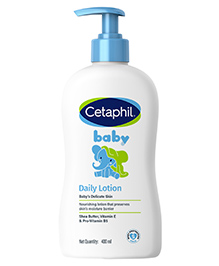
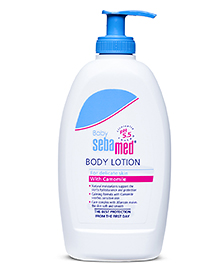
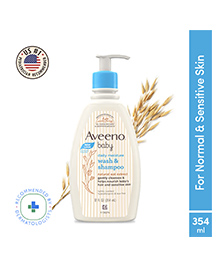
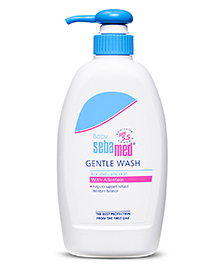
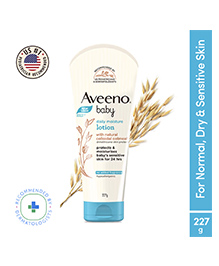
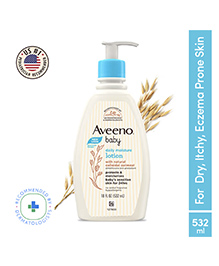
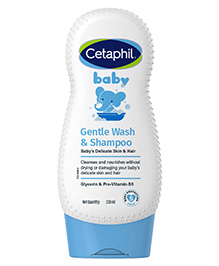







.svg)


















